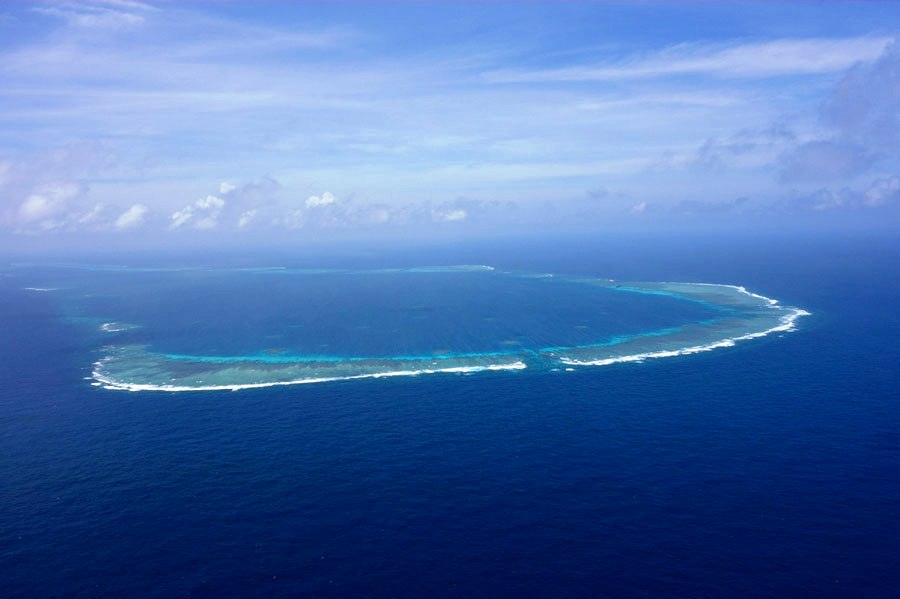Japan butting into disputes with malice: China Daily editorial


The Chinese embassy in the Philippines on Thursday said it has issued a diplomatic note of protest to the Japanese embassy in the Philippines over what it called "irresponsible remarks" by the Japanese ambassador over a recent collision between Chinese and Philippine coast guard vessels in the waters of Xianbin Reef.
Japanese Ambassador to the Philippines Endo Kazuya said the China Coast Guard vessels' law enforcement actions, which were legitimate and professional, against Philippine vessels trying to trespass in the Chinese waters were "another unacceptable development", and he denounced them as tension-increasing "harassment".
This is not the first time the Japanese envoy to the country has thrown himself into the ongoing spat between Manila and Beijing. He has also spoken out to openly endorse Manila's provocations in forum speeches and interviews.
Noting how eager Kazuya is to jump into the fray, a spokesperson for the Chinese embassy said in a statement that even if he were a judge or arbitrator of some sort, he would still need some time to learn the facts of the incidents. Instead, his hasty and "unprincipled criticism" is the symptom of "habitual bias" that is not conducive to upholding the rules-based international order.
Although the Philippines has bilateral defense treaties and military cooperation programs with Japan and the US, along with a trilateral security treaty, none of these pacts has the legal force to justify Japan's or the US' bid to intervene in China's maritime disputes with the Philippines, which should and can only be settled by the two disputing parties. In fact, the maritime disputes were not a challenge to Sino-Philippine relations, or even regional stability, until the US and Japan began to stick their oars in the issue.
The reason why they have instigated and encouraged the Philippines to stage its provocation of anchoring a vessel in the lagoon at Xianbin Reef is they intend for Manila to repeat the trick it has used at China's Ren'ai Reef, where it grounded an old warship in 1999. The intention is for Manila to transform these into permanent facilities so it can make its occupation of the Chinese reefs a fait accompli.
A recent agreement between Beijing and Manila setting the conditions for the Philippines to deliver life support to the military staff stationed on its ship grounded on Ren'ai Reef seems to have stirred Washington and Tokyo into action. Awakening them to the fact that the situation will soon quiet down if they do not continuously tighten the screw on Manila's back.
One day after Kazuya made his latest irresponsible remarks, Samuel Paparo, head of the US "Indo-Pacific" Command, said at an international military conference in Manila that the US military is open to consultations about escorting Philippine ships in the South China Sea, citing the Mutual Defense Treaty between the US and the Philippines.
As a matter of fact, many collisions between Chinese and Philippine vessels in the South China Sea that Manila has plotted are closely watched over by US military ships and planes from nearby and recorded by US reporters on board the modern and larger Philippine ships newly provided by Japan.
That being said, it should be seen that the US and Japan are the real instigators behind the rising South China Sea tensions. They have never thought about helping to promote an early settlement of the disputes but instead are trying to stir them up and further escalate them so that they can drag all regional countries into a united front against China.
China has made no bones about its resolve to firmly safeguard its territorial sovereignty and maritime rights and interests, or its willingness to properly handle maritime disputes with the Philippines through dialogue and consultation.
Instead of acting as a US proxy in the Asia-Pacific, Japan should reflect on history and its words and actions, and contribute more to regional peace and stability, while trying to establish itself as a truly independent and trustworthy country in the eyes of its Asian neighbors and the international community. The peace and stability in the Asia-Pacific are hard-earned and need to be cherished and protected by regional countries.

































